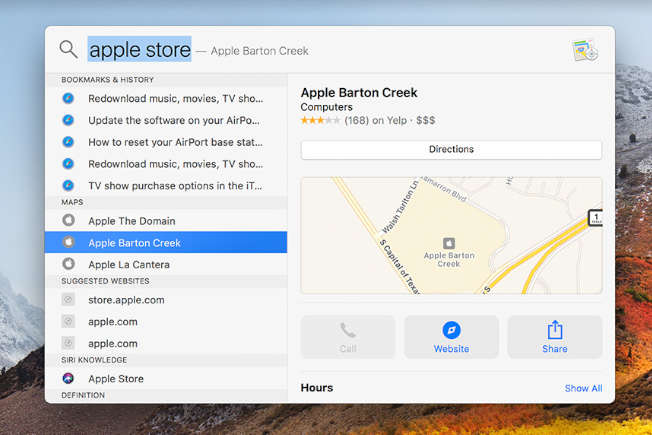
Boost your rankings and attract more customers through our SEO expertise.

They say rumors are usually more exciting than the truth. But right now we’re talking about a particularly intriguing piece of speculation—that Apple may be attempting to launch a search engine—that could have game-changing real-world consequences. And although it is currently little more than hearsay, it has a couple of compelling causes:
As of August 2020, Safari is the most-used mobile browser (in the US), while Chrome is second. So Apple is “winning” the mobile game, right? Well, not entirely. Google and Apple have a relationship that makes Google the default search engine on iPhones. This means that, unless iPhone users manually change their default search settings, Google is the primary mechanism that people use to search on their iPhones. In that regard, Apple is “losing”.

But consider this: Apple’s integrated Spotlight Search function appears to bypass Google entirely, indicating that Apple is getting serious about its search initiatives. While Spotlight Search helps users find apps or files, it also helps them search the web, and can include Google Search results. Recent iOS and iPadOS updates have demonstrated that Spotlight Search can return specific articles or pages, allowing users to navigate directly to that content—and bypass Google Search entirely. A battle for search engine dominance between Google and Apple could shake up the search world as we know it today.
First and foremost, with its own search engine Apple could effectively leverage federated learning, which is machine learning that focuses on user behavior and, critically, occurs entirely on-device. That would allow for performance learning models without the privacy concerns of other machine learning methodologies that send user data to an outside server.
We all know that Apple has been at the forefront of the privacy discussion, with its ITP2(dot) updates centered on removing some of the main privacy concerns such as tracking user behavior cross-platform and cross-device. Google would not be able to do this because it is a paid partner on iOS devices and does not share Apple’s privilege to run federated learning. Apple’s search engine could become the “privacy engine” for users, displacing smaller engines that market themselves as being more privacy-friendly, such as DuckDuckGo.

The second, more obvious pro for Apple is to displace Google’s dominance. As any SEO team knows, we always optimize for Google because it’s the engine that matters. All other engines receive benefit from these optimizations as well, because they’re the laggards following in Google’s footsteps in terms of sophistication. Apple is winning in many, many areas; if it can displace Google in search as well, it stands to increase its market share even further.
At first blush, it seems like Google doesn’t really come out on top in any way if Apple launches a search engine. But it’s not all bad news for the industry incumbent. For starters, it would certainly no longer pay Apple to be the search engine on iPhones. The other interesting angle is that if Apple becomes a key player in the search space, it helps Google in its defense against the antitrust allegations that keep piling up against it. Basically, Google can point at Apple and say, “Look, it’s not just us!”
Subscribe to our monthly newsletter.
In short, not much. For now, it’s enough to be aware that this is (potentially) happening and read up on the information that Apple has released thus far in their About Applebot page. It’s extremely high level and there’s nothing groundbreaking in there, but updates will most likely continue to be posted there before getting picked up anywhere else.
You may also want to see if Applebot’s crawl frequency has been increasing on your site(s) by checking your server logs. A quick search in your server logs for “Applebot” will allow you to see how often it’s crawling your content, and if that frequency has increased.
Once we know exactly how the Apple engine will work, it will of course be necessary to ensure that your SEO agency or team is actively optimizing for Apple as well as Google. After all, there may be significant distinctions between their ranking factors. For now, though, we just sit back and watch in anticipation of what comes next.
Boost your rankings and attract more customers through our SEO expertise.
Subscribe to our monthly newsletter.